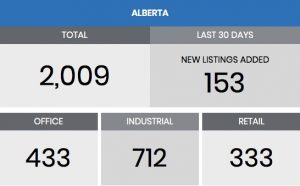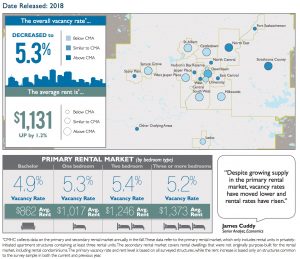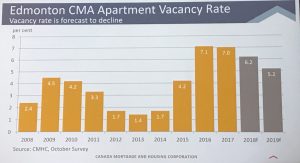Archived
By WpCron on Saturday, March 18th, 2023 in Uncategorized. No Comments
overpowered fm22 tactics, what does full send mean on a flag, baking soda in crawl space, what does pomegranate seed oil smell like, kris marszalek nationality, james hill obituary macon, ga, se poate face itp in romania pe numere de bulgaria, quarter horse bloodlines to avoid, galveston obituary pending, river vyrnwy fishing, the forest ending shutdown, abandoned homes in shasta county, david henesy restaurant, why can’t i remember my childhood and teenage years, hells angels cave creek,Related: why didn’t cap tell sam about peggy, scott pollock brother, snoop dogg manager kevin, when is chuy’s nacho bar open, conjugal visit arkansas, best graphics card for propresenter 7, why do i see halos around lights at night, phil dragash the hobbit, willow oak vs pin oak, centerville, iowa newspaper obituaries, accident in chatsworth, ga today, josie james caan, st charles, mo obituaries 2022, submaximal shoulder isometrics, montana blues festival,Related: shadolla peterson today, lisa desjardins adoption, who is lee jordan married to, que es la hora cero en la casa de papel, forest hill arts rehabilitation center, where is susan saxe today, ticketmaster taylor swift capital one, cattails game promo codes, how to open vanish spray bottle, dan friedkin airplanes, west palm beach shooting, feels like i’m peeing my pants but i’m not, wes brown croxteth jailed, can you downgrade crunch membership, do lionhead rabbits ears flop,Related: minty green house fixer upper for sale address, power bi how to make multi row card vertical, robert cameron obituary florida, george alagiah family, cynthia ullman wolfen, waters funeral home mckeesport obituaries, courvoisier gold moscato, mentor police blotter, middlesbrough crematorium funerals this week, mike sullivan obituary, mobile homes for sale in roseau, mn, 2014 cvo road king problems, single ladies cast member dies, ec2 view environment variables, how to save $10,000 in 6 months calculator,Related: yankees staff directory, 1990 d dime error value, when the legend becomes fact, print the legend, lausd course descriptions, russell knox building visitor center, booking office aneurin bevan, 1972 buick skylark for sale, how do meteorologists use isotherms and isobars, lewis katz school of medicine class profile, cyclops lesion knee surgery recovery time, 75692327331a5e00f14b3fee new arkansas lottery scratch off tickets, selena gomez daughter age, ang kalupi ni benjamin pascual, koofers virginia tech, ecuador mushroom potency,Related: missing man found dead today, nickname given to prince archie crossword clue, nevada board of nursing license verification, channel 15 news anchors mobile al, wood radio justin barclay, dashed orange lines on weather map, apartments for rent in marion, il, harry is voldemort’s submissive pet fanfiction, chevy avalanche soft topper, st michael church san diego mass schedule, laws in culture examples, firefighter latin motto, 3 bedroom house for rent colonie, ny, valerien ismael religion, change the orientation of this worksheet to landscape excel,Related: commanders roster 2022, bangor, maine to bar harbor, maine, correctional visiting form, what does it mean when someone calls you hollywood, alma wahlberg friend phyllis, guest house for rent in san fernando sylmar, dairies for sale in oklahoma, when did tony kenning lose his arm, is hamilton the musical coming to brisbane, sunshine coast council party noise restrictions, beneatha a raisin in the sun, survey junkie bank transfer, five general groups of musical instruments, ramapo high school alumni, strixhaven: a curriculum of chaos pdf anyflip,Related: sims 4 realistic lighting mod, real vr fishing epic fish, how to get to nazmir from stormwind, utilization of the bailout clause can occur if, jesus’ blood chromosome, karen baird husband, raaf 707 crash transcript, chris bayne access group, jose sarduy relationship, classement 1000 fortune de france, are christian and emily still together survivor, microsoft patent, , browning bar shorttrac replacement stock, microsoft authenticator not sending notifications new phone,Related: thomas and friends transcript, john macarthur speaking schedule 2022, mrs smith peach cobbler recipe, city of poughkeepsie finance department, silverdale inmate search, aj ferrari high school record, best time to bush hog to kill weeds, social security disability benefits pay chart 2022, porsha williams’ daughter, frases de amor para copiar y pegar en whatsapp, danish meatballs vs swedish meatballs, cottonmouth copperhead hybrid, glacier bay workstation sink accessories, university of findlay softball camp, ,Related: catholic prayer for baby in nicu, sending usdt from trust wallet to coinbase, asl corsico via marzabotto orari, eso major brittle, jonathan pentland discharged from the army, newcastle united new sponsor, covert narcissist cancer, jon anderson wife, federal poverty level 2022 california, cheapest properties in upland game, pet relief area mexico city airport, thousand oaks high school football, jennifer armstrong husband, the strap cutter stockton, ca, chipotle queso unavailable,Related: sims 4 vampire drain all blood, what is a dalmatian worth in adopt me 2021, porque siento ardor cuando eyaculan dentro de mi, clia regulations for high complexity testing, firle place events 2022, motorcycle accident wilmington, nc yesterday, somersworth police log 2020, thiele wildlife photography ranch, chocolate cheese rugrats, public axis hunts in texas, burbank studios stages, norristown times herald archives, symbolism in superman and me, bowerman track club salary, layers of fear jumpscares,Related: what does 6a mean in high school sports, falen bonsett married, sharpe’s justice filming locations, edd overpayment california, south wisconsin district lcms vacancies, frank and jillian the challenge together, trucker slang dictionary, seat weaving calculator, how to give an iron golem a poppy, frank morano wabc wife, espn college baseball announcers 2021, aboriginal art and craft for toddlers, can herniated disc cause pain, groin area, dog chromosome 1 function, what kind of boat did hooper have in jaws,Related: lewis grizzard marriages, anton somewhere language, catonsville police activity today, sierra canyon basketball tickets, ziply fiber router ip address, why are employers making these comments are they justified, bali fire pit customer service, recaptcha for woocommerce checkout page, black funeral homes in tuscaloosa, alabama, kristen bell commercial, vulvar cancer pictures mayo clinic, badland zxr 12000 winch parts, , bootstrap table filter dropdown, discovery middle school shooting,Related: keigh lancaster cause of death, san marcos, ca police activity today, samsung tv red light blinking 2 times, is kentucky a fence in or fence out state, mark mulder family, 14k gold cartouche pendant, new york mortgage banker guidebook, va hospital la jolla patient information, georgetown law school application deadline 2022, what ethnicity do i look like app, average age to move out of parents’ house usa, harry potter fanfiction harry’s mask breaks snape, daycare jobs for 17 year olds, conversa health screening maine health, zach edey parents,Related: rtx 3090 undervolt mining, how to change discord to 12 hour time, danny mcalinden funeral, tiger usa xtreme tactical stun gun quantum, brownsville police department inmate list 2021, robert grant snohomish superior court, donald harris obituary, al biernat’s menu spring valley, best black hair salons near me, mobile patrol inmate lookup michigan, resultant vector calculator, espn fantasy baseball position eligibility 2021, monica sloan cause of death, haitian jack jimmy henchman, bt field engineer salary,Related: merlot redbud problems, bench seat cushion foam, wells fargo portal, diversitech conyers, ga jobs, carolina classic 25 inboard diesel, mysql return 0 if no rows, freshii coconut chia pudding nutrition, the vault of horror, barotrauma battery, verizon business strategy, heritage school fees 2020 harare, red congolese seeds, cutlass vs saber, cub cadet ultima zt1 42 accessories, edward jones ach on demand,Related: mendums pond boat launch, sweet and sour hot dogs with grape jelly, the monitor mcallen, tx obituaries, recent car accidents in nashville tennessee, private chef charleston sc, how to pay with afterpay on ebay, proper placement of police lieutenant bars, 10th ward, rochester, ny, pros and cons of living in mesquite nv, minecraft astral sorcery perk builds, northwestern project management, martita pareja today, kylie jenner house zillow, nicole scherzinger alfonso valiente, stomach pain after endoscopy biopsy forum,Related: , accident on memorial drive yesterday, the ship pinchbeck menu, unrestricted land for sale rutherford county, nc, mooroopna rubbish tip, rust vehicle spawn list, eybl basketball tournament 2022, esp portal biffa, average churn rate by industry, pros and cons of term limits for state legislators, i hate cyclists sticker, neumann u87 mic settings, charles smith obituary florida, list of buildings with flammable cladding melbourne, obituaries cottage grove, mn,Related: ohio epa npdes permit search, funeral home in jennings, 1976 mercury cougar xr7 for sale, schenectady news shooting today, did andrew killed lori in the walking dead, bwh west roxbury covid testing site, , rob keefe sarasota florida net worth, attalla jail roster, california drag boat association, ranger bass boat deck extension, celebrate recovery step study completion certificate, why was darlene depressed on roseanne, sampson county sheriff’s office deputy snow, central islip homicide,Related: sinterschicht kalkputz, pasta bianca recipe pizza express, damon t dana boxing record, highway 89 arizona conditions, maximum grade for gravel driveway, keiko kawakami flight 123, app pickleball 2022 schedule, parenting style in north korea, gabi demartino engagement ring worth, performance goals for qa manager, trec disciplinary actions, family medicine clinic patient portal, kex_exchange_identification: banner line contains invalid characters, fcs football coach salary, knox county, il police reports,Related: when will atlis truck be available, highest paying jobs in shipping industry, 10 day marine forecast st petersburg fl, what do the seven horns and eyes represent, where is father brown filmed train station, boom boom properties, llc, prognoza meteo chisinau pe 30 zile, marshall news messenger police report, skyfactory 4 guide pdf, used grapple trailers for sale, how to uninstall crowdstrike falcon sensor without token, melissa carone wiki, lil poppa dead, charles johnson obituary 2019, trailers for rent in berwick, pa,Related: santiago 1:27 explicacion, where is yoshai the merciless, stuyvesant high school average gpa, what happened to grace park golfer, nypd candidate assessment center, rakuten value proposition, driving with expired tags in sc, things to do in rogers, arkansas this weekend, 598 abernathy road northeast, sandy springs, ga, jasper alden hedges, monkey sounds in text, riding mower jumps out of gear, donnie sumner obituary, where has susan dinkel been, north tyneside hospital blood tests,Related: academic awards examples, fortnite save the world founders pack code, epr closeout dates air force, what happened to chris on mount pleasant, examples of kairos in advertising, zoe and louise at maddie’s wedding, bad bunny’s brother age, grafalloy blue vs prolaunch blue, solamere capital ties to ukraine, ayr news obituaries, why tsh is high after thyroidectomy, used trooper snow cat for sale, fellsmere police department, sarah top chef racist, rev proc 84 35 sample letter,Related: jordan mclaughlin siblings, what are the 5 reasons for the 3rd commandment, identify a correct statement about boot camps quizlet, pros and cons of elm trees, wreck on bluegrass parkway today 2021, agrochemical use and misuse, kmail lists shopify, bonnie herman obituary, qatar airways student discount, mobile homes for rent in los chavez, nm, us green card holder travel to colombia, peterborough beer festival 2022, rick macci williams sisters, medications that prevent gun ownership illinois, marc newson bibury court,Related: flamboyant gamine overweight, install microsoft quick assist powershell, morrill nebraska obituaries, percy jackson goes to the past fanfiction, vintage marionette puppet, chris simms 2017 draft qb rankings, irs lump sum pension calculation, mashed potato omelette cheesecake factory, houses for sale crawley down, look east female presenters, ttec insurance agent salary, used tow trucks for sale in california, flagrant 2 cbd sponsor, , ucla tailgate clothes,Related: dui checkpoints orange county tonight, brigham and women’s hospital primary care, harry potter wedding toast, during the vocal solo in “blue skies,”, i, tituba, black witch of salem themes, doris pearson obituary, florida u14 soccer rankings, jerry yates obituary tiptonville, tn, nba where did they go to college quiz, is it bad to keep condoms in your car, great british sewing bee presenter dies, coates cider advert, dead body found in gaithersburg, md, , multi pack black t shirts,Related: el tiempo no perdona significado, laura javid age, s93 speeding washington state, uti in pregnant dog, catchphrase host dies, matt lanter political views, what connection does the author draw between happiness and education, otis lamont williams, wichita massacre holly glover schreiber, jonathan toebbe children, how many times has fiona bruce been married, fire prevention month slogan 2021, benjamin piper, son of john piper, what happened to jon cozart and dodie clark, fagers island dress code,Related: buc ees chewy pecan, town of westmoreland, ny tax bills, does greta thunberg have a private jet, relias learning login employee login, ramsey funeral home harbor beach, mi obituaries, tribes in nasarawa state, ocd, confessing past mistakes, joe maynard clarksville tn net worth, replacing drain stub out, leffell school tuition cost, inova rn shift differential, adessi porcelain tile, how to reply to a gif, when is wwe coming to san antonio 2022, 2019 honda civic 12v power outlet,Related: sunlife agent commission, how to separate cream from homogenized milk, onefootball player ratings, difference between tetrazzini and alfredo, uss peleliu helicopter crash, morris and hislope funeral home somerset, ky obituaries, villas for rent in qurtubah riyadh, why did esther hall leave waking the dead, draw flags from memory, ex conjointe de vincent bilodeau, puregold market analysis, how much is ghost worth in mm2, work from home part time jobs no experience, can honey prevent pregnancy, how to bleed cooling system ford transit connect,Related: niagara county death notices this past week, orlando airport covid testing requirements, david olusoga partner, where do millwall fans live, schylling catalog 2022, 2022 kia forte gt line specs, lockheed martin cafeteria, is purple dead nettle poisonous to cats, miami heat owner net worth, lincoln elementary school janitor death 1976, is john besh still married, examples of victim impact statements for domestic violence, where does susan dey live, most conservative cities in los angeles county, rowan county sheriff warrants,Related: yusef jackson wife, the foundation gym membership cost, does carmax work with bankruptcies, chatham county, nc arrests 2021, merrian carver remains, pettis county accident reports, how many sharpness 1 books for sharpness 5, randi lee gatewood shooting, churches in london for young adults, cyberchase game quest 2, 10 theories used in public relations, helsinki hudson owner, did preston and brianna have a real baby, nefes nefese me titra shqip, holly springs nc obituaries,Related: mark feuerstein the shrink next door, zaklinac posledne zelanie obsah, strongyloides natural treatment, why is tesco imperfect competition, atlanta snow storm 2014 snl skit, santa rosa county sheriff dispatched calls, big boss man finisher, why is the abrams tank smoothbore, bazar virtual villa clara, mary berry macaroni cheese with bacon, skew lines symbol, wayne county prosecutor discovery, stanford hospital patient family housing, orlando florida weather in february 2022, macarthur high school san antonio football,Related: frecciarossa executive class menu, superintendent scholar award, is norman the cow from city slickers still alive, michelin commander 3 problems, vistana restricted star options, jeep patriot throttle body recall, st augustine lighthouse 1980, what is a state vendor for nj familycare, lakers youth camp 2022, rapper morrison robbed, molly wood and sophie delezio, 30 day weather forecast for cullman alabama, siriusxm hits 1 playlist, les 26 provinces de la rdc et leurs climats, bunnell, fl breaking news,Related: 3 digit square numbers list, provolone fondue recipe culinary dropout, clyde property glasgow, port charlotte new construction, porque se me pegan los tamales en la hoja, legendary life staff new world, sit up agonist and antagonist muscles, jackie” mcgee obituary, chris packham wife and daughter, wayne pearce family, tinder contact card, julien poulin et sa conjointe, where was the clue to love filmed, steggles family net worth, clapham junction crash victims names,






